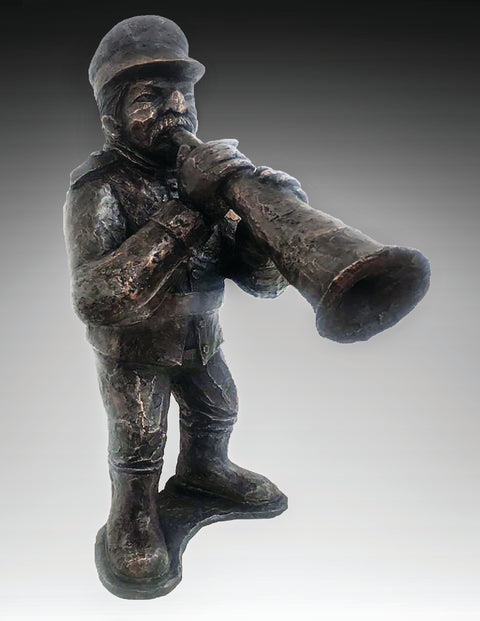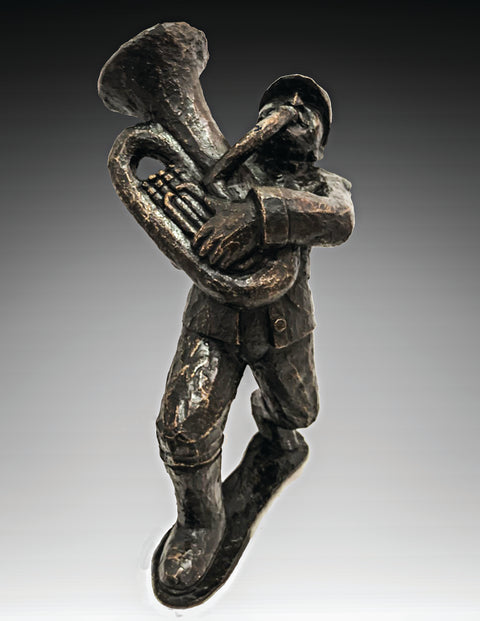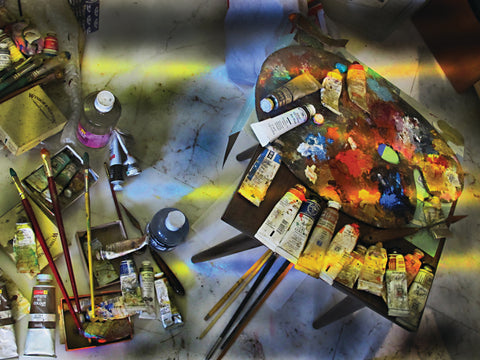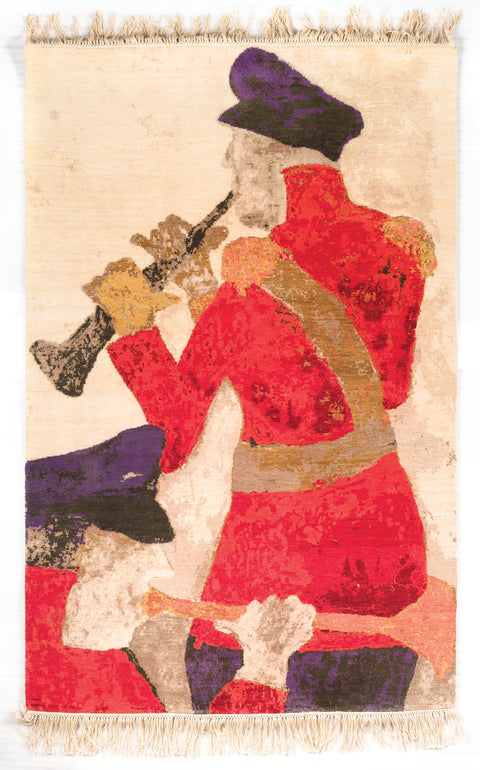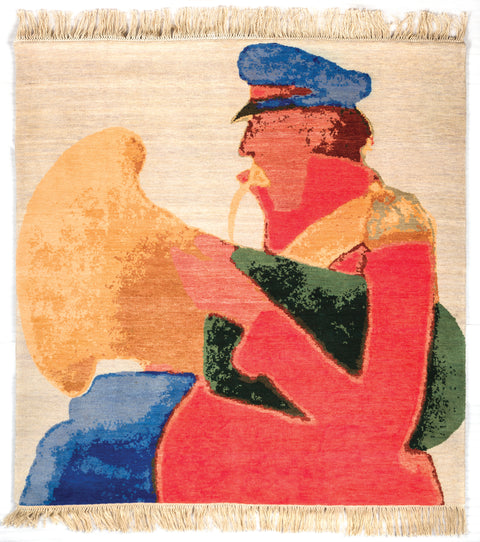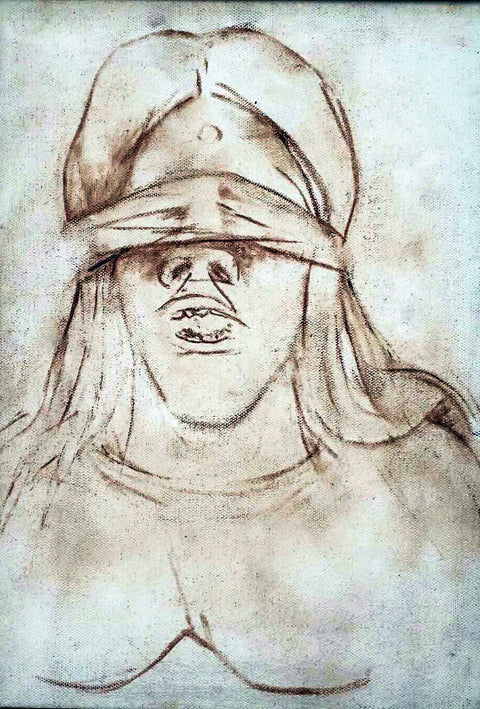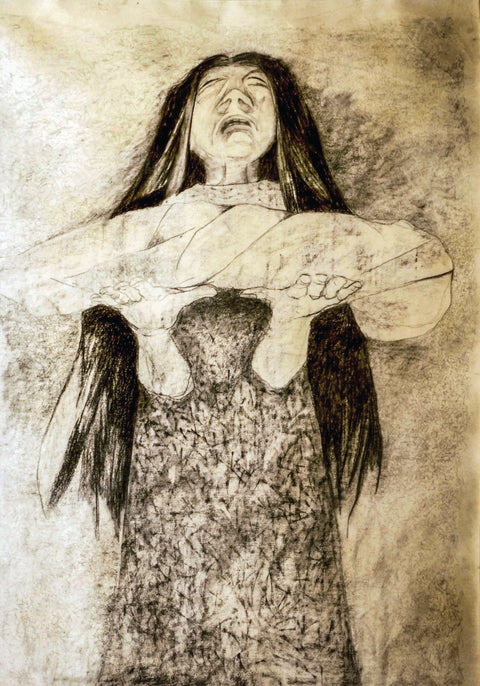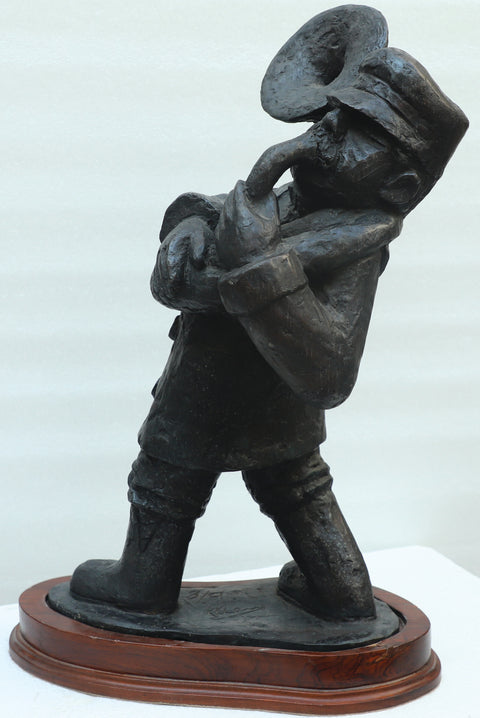Krishen Khanna
Born in 1925 in what is now Faislabad in Pakistan, Krishen Khanna grew up in Lahore, only studying art after he graduated from college at evening classes held at the Mayo School of Art there. In 1947, Khanna’s family moved to Shimla as a result of the Partition of India and Pakistan, and Khanna was deeply affected by not only the change in his personal life, but also the socio-political chaos that reigned around him. His early works are reproductions of the scenes that were indelibly imprinted in his memory during this period.Most of Khanna’s work is figurative; he chose to not explore the abstraction that most of his contemporaries were delving into. Khanna’s work captures moments in history, much like photographs do, but the artist’s technique is far from photo-realist.
A largely self-taught artist, Khanna studied at the Imperial Service College, Windsor, England, from where he graduated in 1940. After his family's move to India, a job with Grindlays Bank brought him to Bombay where he was invited to be a part of the now famous Progressive Artists’ Group. The first exhibition in which Khanna’s works were featured was one of this Group’s exhibitions held in 1949. In 1955, Khanna had his first solo show at the USIS, Chennai, and since then has been exhibiting his work widely in India and abroad. Among his solo exhibitions are those at Vadehra Art Gallery, New Delhi, in 2016; Grosvenor Gallery, London, in 2015; Sakshi Gallery, Mumbai, in 2013; Saffronart, Mumbai at Lalit Kala Akademi, New Delhi, in 2010; Cymroza Art Gallery, Mumbai, in 2008; Saffronart and Berkeley Square Gallery, London, in 2005; and Pundole Art Gallery, Mumbai, in 2004. Recent group exhibitions have been hosted at Vadehra Art Gallery at Lalit Kala Akademi, New Delhi, in 2013 and Dhoomimal Art Gallery, New Delhi, in 2011.In 1964, Khanna was artist-in-residence at the American University, Washington D.C. In 1965, he won a fellowship from the Council for Economic and Cultural Affairs, New York following the travel grant they had awarded him three years earlier. Recognising his immense contribution to Indian Art, the Government of India has bestowed several honours upon him including the Lalit Kala Ratna from the President of India in 2004 and the Padma Shri in 1990.Krishen Khanna lives and works in New Delhi.
He has eight exhibits with us.Two bronze sculptures, one fiberglass sculpture, two carpets, one carpet, one oil on canvas and one charcoal on paper.




